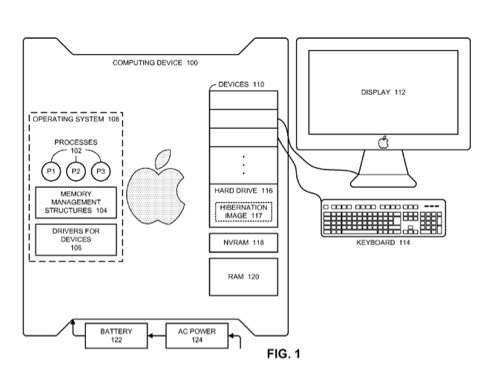Two new Apple patents at the U.S. Patent & Trademark Office show that Apple continues to work on ways to get the most life out of the batteries on its various devices.
Patent number 2012185715 involves a method and apparatus for facilitating device hibernation. One embodiment of the present invention provides a system that enables a computing device to save additional power by entering a “hibernation mode,” wherein the active state of the computing device is preserved in non-volatile storage while power to volatile storage is turned off. During operation, the system reanimates a computing device from a hibernation image by restoring reanimation code from the hibernation image and then executing the reanimation code.
While executing this reanimation code, the system restores the rest of the hibernation image by, reading compressed data containing the rest of the hibernation image, and decompressing the compressed data using computational circuitry within the computing device. During this process, the decompression operations are overlapped with the reading operations to improve performance. Dean Reece and Simon M. Douglas are the inventors.
Patent number 2012185716 is for conserving power by reducing voltage supplied to an instruction-processing portion of a processor. One embodiment of the present invention provides a system that facilitates reducing static power consumption of a processor. During operation, the system receives a signal indicating that instruction execution within the processor is to be temporarily halted.
In response to this signal, the system halts an instruction-processing portion of the processor, and reduces the voltage supplied to the instruction-processing portion of the processor. Full voltage is maintained to a remaining portion of the processor, so that the remaining portion of the processor can continue to operate while the instruction-processing portion of the processor is in reduced power mode. Lynn R. Youngs is the inventor.

